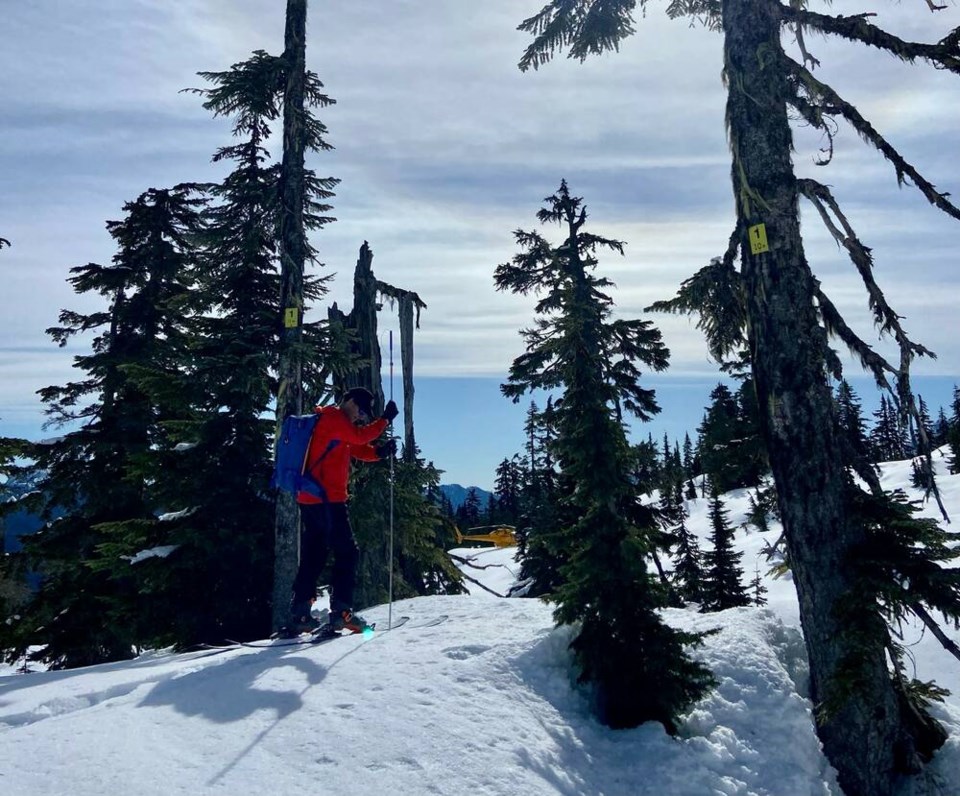The cool start to spring this year may have you grumbling about still sporting a toque in mid-April, but for the region’s water managers, it’s good news.
Measurements taken at high elevation in Metro Vancouver’s key watersheds above North Vancouver put snowpack levels at about 80 per cent of normal at the beginning of April.
That’s “within normal range,” said Heidi Walsh, director of watershed and environmental management with Metro Vancouver’s water services department. “It’s nothing to be concerned about.”
Continuing cold weather combined with winter storms over the past two weekends has likely added to that snowpack.
Metro hydrologists take measurements at five different sites in the Capilano, Seymour and Coquitlam watersheds monthly throughout the winter, increasing the frequency in spring, between April and June.
Automated weather stations in the upper elevations also supply information about snow levels.
Water supply managers have been keeping close tabs on the snowpack levels in local mountains since the early 1900s.
The basic method – which involves sampling snow depth and density with specialized snow tubes to assess the amount of water storage – hasn’t changed much in the past 100 years.
High-tech help for snowpack measurement
But in recent years, Metro Vancouver has also been using a new plane-mounted laser technology to understand the snowpack. A high-tech camera is mounted underneath a plane and flies over the watershed bouncing measurements off the ground. That is then compared to data for the same area when there is no snow to calculate snow pack, said Walsh.
“It gives us a broader view and a better look at the full watershed,” she added.
Rain is still the major source of water to keep Metro reservoirs full.
But the snowpack provides an important buffer, especially during dry months later in the summer.
In a few weeks, Metro will be bumping up its water storage in local reservoirs by closing the drum gate on the Cleveland Dam, raising the dam level. A similar process on the Seymour Dam involves installing steel plates to raise the height of the reservoir for summer storage.
Current water use in Metro Vancouver is about 980 million litres per day. But that can rise significantly during hot dry weather. During the 2021 heat home, peak water use hit 1.5 billion litres a day on a number of days, said Walsh.
Sprinkling restrictions in effect May 1
In response to that, last year new summer watering regulations came into effect, restricting lawn watering to one day a week during the most lenient stage of sprinkling regulations. Those sprinkling regulations start May 1 and run until Oct. 15.
Water use per capita has been falling for more than a decade in Metro Vancouver, spurred by changes ranging from a push for conservation to more people living in apartments without back yards today versus the single-family homes of the past. At the same time, increased population growth is driving overall water use higher.
This winter and early spring has been drier than usual, said Environment Canada meteorologist Bobby Sekhon, with North Vancouver weather stations recording only about 35 per cent of normal rainfall in March.
The cooler, drier weather pattern this winter and spring has likely been brought about by the third consecutive La Nina weather pattern – in which colder-than-usual ocean temperatures influence weather. In the past, La Nina weather patterns have been associated with later season snowfall accumulation and later snow melt.
Sekhon said current forecasts don’t predict significant warming until the middle or end of May.




